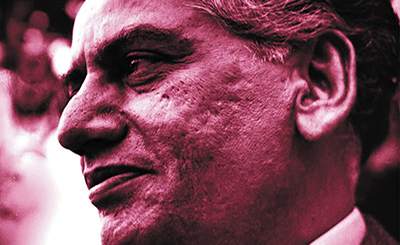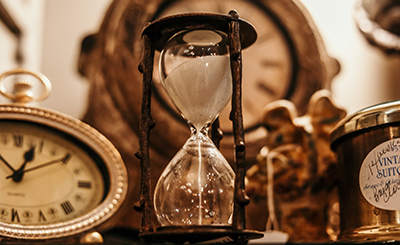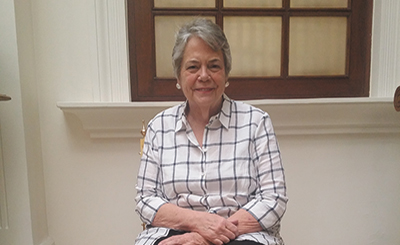
I tried to put my days in solitary confinement behind me and build a new life, a life of light and laughter, but in dreams I would remember it, and even ten years later, Bridget would still come in to soothe me at night with a cup of hot milk, and rub my back and attempt to make me tranquil and tell me that everything was going to be alright.
They locked me away. Said I was not fit to live among the humans. The judge said I was ‘a danger to self and others’ and that I had a ‘seriously diminished capacity to take care of myself’. I was diagnosed and labelled, medicated and shoved into the corner. Forgotten about. Society’s refuse. For six months, I remained in that tiny cell like room. There was a small window carved into the wall. Meals, served on a paper plate, with plastic cutlery were pushed into the room by an anonymous figure in a white uniform at 7.30 am, 12 noon and 6.30 pm. I was treated worse than the lowliest dog. I had no company in my cell and, being claustrophobic, I sensed the four walls closing in around me. I feared I would be locked in there forever — a prisoner for all time. A prison sentence has an end date, but you can be kept in a psychiatric institution indefinitely — until such time as they deem you ‘well’ enough to be released.
I had committed no crime. I’d broken up with my boyfriend three months before being sectioned and had been smoking heavily and not eating properly, but surely there were many other women like that and you would not think that would give them a reason to lock me away from society’s eyes. I had been paying my bills. I had not harmed anybody. I was pregnant to my boyfriend but he did not want to take any responsibility for the baby. He barely wanted to know me. On the way to a book club event, I had gotten lost in my car down some country back roads and knocked on a farmer’s door for help, asking for directions. I must have looked disheveled because the farmer did not help me, they turned me away, lost, into the cold dark night and I was left to stumble around the countryside in my car. I never did find my way to the event. I was upset with my boyfriend, who had dumped me and I went around to his house one night to try and talk about the relationship. He told me he never wanted to see me again. I was in despair and the futility of the situation hit me. I went outside and lay down in the road and waited for a car to run over me. My boyfriend called the local mental health team to come and remove me. They came for me in their car, shoved me roughly into the back seat and put the kiddie locks on. I felt so demeaned!
I was driven to the local mental health unit where I was assessed by a cold clinical female psychiatrist who said I would have to stay in hospital for an initial five days and would not be allowed to leave. I felt that my rights had been taken away from me. This was compulsory detention! I was shown to my room, a small featureless room exactly like all the others on the ward. Thank goodness there was a window on the outside wall that looked out on a bland courtyard, which was edged only by a strip of grass, with no flowers or interesting flora at all. I blamed my boyfriend for sending me here. He had over-reacted when he had called the mental health crisis team. I had not posed any danger to him — I had never acted violently throughout our entire relationship.
I did not come from the best background. My mother had been an alcoholic and I was taken off her at the age of eleven and put into foster care. I can’t remember if I was abused or not; most of the time is a blank. My dad was a fisherman who had been in port for the weekend; my mother didn’t even know his last name.
The five days were excruciating. There were phone calls from my distressed parents and sister who wanted to know what was going on. I told them that it was Matt’s fault but that I hoped to be out soon. The psychiatrist banned me from making outgoing phone calls so that I could not contact a lawyer. It transpired that this was illegal, a fact that I found out upon my release, six months later. I asked my mother to arrange for a lawyer to call me, but the doctor must have blocked this call because it never came. I was in limbo, rotting. My frustration boiled up in me, nobody was listening to me. When a staff member approached me and told me I smelt and needed a shower, I snapped and picked up a chair and threw it at them. That was it. I was frog-marched into seclusion, the door was slammed and locked behind me. Because it was seclusion, it was an automatic no visitors zone.
The psychiatrist wrote in my notes that I must stay on the ward for a further 14 days, which seemed like a lifetime. She came to visit me in my locked cell and told me they were seeking an inpatient compulsory treatment order and that I would have to go to court. I had never been in trouble with the law in my short twenty-five years and I was scared. I had just had a cup of tea and I threw up on the spot.
Court date was set for two days time. I was so nervous — what was going to happen? The day came and two nurses came to usher me to court. Once there I had to wait in the waiting room for what seemed like an eternity. No one talked to me. I just received contemptuous looks from whoever walked past me. I was under constant supervision by the two nurses as well as the burly looking security guard. I was feeling very discriminated against. I started to feel deep shame and anger welling up inside of me. A deep sense of injustice hit me. Why was I being treated like this? Like a criminal. My appointed lawyer had met me only briefly. I wasn’t impressed with him. He looked about eighty and carried a frayed old briefcase with a whole lot of crumpled papers hanging out of it and he reeked of whiskey and stale tobacco.
“I’ve been assigned your case, I only got time last night to have a quick look over the notes and I have to say it’s not looking very hopeful.” Then he walked off to the reception desk and I overheard him ask where the free coffee was.
Eventually it was my turn to enter the courtroom. The judge didn’t even look at me as I walked in with the nurses. He was busy reading his notes with his glasses perched on the end of his nose. I sat down and all was silent. My lawyer stumbled in with spilt coffee down his shirt and notes from his briefcase falling on the floor. My psychiatrist was present, already seated.
The judge spoke.
“So are you Miss Cathy Haroldson?” he said, still not looking at me. I remained silent. How arrogant, I thought. I decided not to answer until he looked at me. Silence thickened the air. He didn’t look at me for two minutes but continued rifling through his papers.
He looked up “No answer? OK I’m holding you in contempt of court, which means you are more likely to get an inpatient order. Would you like to tell me your name now?”
Something snapped inside of me.
“You have my name in the notes you arrogant bastard.” I replied.
He slammed his hand down upon the desk.
“I will not be spoken to in that manner. Young lady you are sentenced to a six month inpatient order and I am advising the doctors that you spend it in seclusion.”
I gave him a cold look. I was not going to give him the satisfaction of bursting into tears although I felt very despondent.
I was lead back to my cell by the two nurses who had brought me out.
“That’s not going to help your case, talking to people like that”, said one of the nurses.
“I don’t care”, I snapped back.
It was true. I was beyond caring. I just wanted to lie down and be left alone.
Left alone I was — for days, weeks, months on end. Like a caged animal. My parents and sister were not allowed to visit me and there were no phone calls allowed. For approximately 183 days I was cooped up in there — the silence broken only by the sound of a meal being passed through the flap or somebody coming to give me medication. I passed the time by singing to my baby, wondering what side-effects the psychiatric medication would have on my child. I was also scared that they might take my baby from me once it was born.
The psychiatrist in charge of my care came to visit me once a week. My medication was increased to keep me more doped up. I expressed my concerns about my baby’s welfare but they still forced me to take the medication in front of them.
The first note appeared after I had been in seclusion for a month. It was slid under the door one morning shortly after breakfast and was written on lavender scented paper. It read ‘Hold on. You are very brave. Thinking of you. B.’
I was taken aback. Somebody was thinking of me? The note was a light shining into my darkness. It was the only kindness anybody had shown me in a long time.
My six months passed with only the notes to hold onto.
‘Thinking of you and your baby. I know what you must be suffering,’ read one.
‘Hold on for a brighter day’, read another.
I came to look forward to them, and treasured them and hid them under my pillow. Who was writing them? Some kind soul. And brave too, to risk being found passing notes in such a clinical, intimidating atmosphere.
When they finally let me out I was very subdued, my head hanging down low, feeling very uncertain. As I was standing in the reception area, ready to transition to the world outside, a nurse came up to me, put her hand over mine and pushed lavender paper into my hand with messages written upon it — ‘I’m here for you if you need me’ and an address. ‘Please be discreet’ was written at the bottom of the note. B. I was taken aback by the human contact. Our eyes met. Contact was made. I was intrigued — she had held out her hand to me. I wanted to know more.
I’d had a casual job as a receptionist at the local backpackers and was owed a month’s wages. I also needed somewhere to stay. They were forthcoming with the money. I booked myself into a single room, then called Work and Income to make an appointment. I mused to myself that it went against human nature to be locked away in a small room. In the morning I stood opening and closing the door for five minutes, marveling that I had this small power — the power to let myself in and out of a room. I was now seven months pregnant and was unsure as to what my next move would be. The world outside seemed scary and dangerous, devoid of friends, and it was not just me now I had to think about my child as well. I took out the piece of paper that the nurse had handed to me. I smelt the paper, the lavender scent reassuring me. I went to the local service station and found a map, to locate the address. I then caught a bus to her house.
The house was a three bedroom bungalow with a beautiful garden filled with lavender and roses out the front. A black cat with green eyes greeted me at the gate. I bent down to stroke it and it meowed in a friendly manner. I approached the door, hesitating before ringing the doorbell. Gathering my courage, I pressed the buzzer. The door swung open and there stood Bridget. She looked different out of her uniform. I guessed that she was about forty. She had light wrinkles around her lovely green eyes. Her red hair fell to her shoulders in a wavy bob.
“Hello there, I was wondering if you’d come and see me.”
She stood back so that I could enter. I entered the house.
Inside the house was warm and inviting with polished wooden floorboards and walls painted cream with an apricot frieze. Bridget fixed us both a cup of coffee, then told me I could stay in her spare room for as long as I wanted.
“Just till you find your feet love. I wouldn’t want to take your independence away, but sometimes it’s nice to be cared for. Especially after you’ve been through an ordeal.”
After we had finished our coffee she showed me to the spare room. It was painted up like the other rooms, which I found comforting.
The Italian film festival came to town and Bridget and I attended many films together. We would go out to dinner together afterwards. I had been locked in solitary for so long that it felt strange to be leading a ‘normal’ life — dinner and a movie and it took me some time to adjust to being in ‘the world outside’. I often felt that people were staring at me, even when they weren’t. I also suffered many nightmares about being buried alive and would cry out in my sleep. Bridget would then come into my room and rub my back and prepare me a cup of hot milk to soothe me.
I felt overwhelmed by Bridget’s generosity and did not know how I could repay her. I had nothing to give. I did my best to help out around the house and not to get underfoot. We started going to the beach together too, taking picnics with us. In short, we derived enjoyment from life. My pregnancy was progressing and I was by now in my eighth month with an enormous bulge sticking out the front of me. Bridget took me shopping for baby’s clothes, a bottle, a pushchair, a basinet and a cot. She said it was good to be prepared.
One night as we sat up late talking Bridget confided in me that she had always wanted to have a child but could not conceive. She was infertile. Her husband had left her because of this problem.
“Not much of a husband”, I scoffed.
“He wanted children too and I couldn’t give them to him, so he moved on.”
“What about adoption?”
“My husband was fussy. He didn’t want to adopt. I wouldn’t have minded it.”
I asked Bridget if I could have a homebirth and she agreed that I could.
The night of my childbirth rolled around. The midwife was called and arrived with oxygen and painkillers. I grunted and groaned on the bed in the spare room, and eventually the baby was born. She was gorgeous and I named her Sophie. Bridget said Sophie was a welcome addition to the household and swore to care for her as if she was her own — the child she had always wanted. I was glad to be able to make Bridget happy — to give her a child. So Sophie grew up with two mothers. I stayed living with Bridget for the next ten years. When Sophie went to kindergarten I went back to work at the backpackers and could pay my way, so with time I felt less reliant on Bridget and more capable of standing on my own two feet.
I tried to put my days in solitary confinement behind me and build a new life, a life of light and laughter, but in dreams I would remember it, and even ten years later, Bridget would still come in to soothe me at night with a cup of hot milk, and rub my back and attempt to make me tranquil and tell me that everything was going to be alright.
More from The Byword
Comments
*Comments will be moderated











